
Nakuru: The Jewel of the Great Rift Valley
Nakuru, a vibrant city nestled in the heart of Kenya's Great Rift Valley, is a destination brimming with natural beauty and cultural heritage. Known for its stunning landscapes, Nakuru is home to the world-renowned Lake Nakuru National Park. The park is a sanctuary for a vast array of wildlife, including the famous pink flamingos that paint the lake's shores. Visitors can also spot rhinos, lions, and a variety of bird species, making it a haven for nature enthusiasts and wildlife photographers. Beyond its natural allure, Nakuru offers rich cultural experiences. The city is a melting pot of different ethnic groups, each contributing to its diverse cultural tapestry. Tourists can explore local markets, sample traditional Kenyan cuisine, and engage with the warm and welcoming locals. The Hyrax Hill Prehistoric Site and Museum provides a fascinating glimpse into the region's ancient history, showcasing artifacts and relics from early human settlements. Nakuru's vibrant city life is complemented by its scenic surroundings. The Menengai Crater, one of the largest volcanic craters in the world, offers breathtaking views and opportunities for hiking and exploration. Whether you're an adventure seeker, a history buff, or simply looking to unwind in nature's embrace, Nakuru promises a memorable and enriching experience.
Local tips in Nakuru
- Visit Lake Nakuru National Park early in the morning for the best wildlife sightings.
- Carry a good pair of binoculars for bird watching, especially to see the flamingos up close.
- Explore the local markets to buy unique handmade crafts and souvenirs.
- Try traditional Kenyan dishes like Nyama Choma and Ugali at local eateries.
- Wear comfortable hiking shoes if planning to trek around Menengai Crater.
- Hire a local guide for a more informative and immersive experience at historical sites.
- Always have bottled water with you to stay hydrated, especially during outdoor activities.
Nakuru: The Jewel of the Great Rift Valley
Nakuru, a vibrant city nestled in the heart of Kenya's Great Rift Valley, is a destination brimming with natural beauty and cultural heritage. Known for its stunning landscapes, Nakuru is home to the world-renowned Lake Nakuru National Park. The park is a sanctuary for a vast array of wildlife, including the famous pink flamingos that paint the lake's shores. Visitors can also spot rhinos, lions, and a variety of bird species, making it a haven for nature enthusiasts and wildlife photographers. Beyond its natural allure, Nakuru offers rich cultural experiences. The city is a melting pot of different ethnic groups, each contributing to its diverse cultural tapestry. Tourists can explore local markets, sample traditional Kenyan cuisine, and engage with the warm and welcoming locals. The Hyrax Hill Prehistoric Site and Museum provides a fascinating glimpse into the region's ancient history, showcasing artifacts and relics from early human settlements. Nakuru's vibrant city life is complemented by its scenic surroundings. The Menengai Crater, one of the largest volcanic craters in the world, offers breathtaking views and opportunities for hiking and exploration. Whether you're an adventure seeker, a history buff, or simply looking to unwind in nature's embrace, Nakuru promises a memorable and enriching experience.
When is the best time to go to Nakuru?
Iconic landmarks you can’t miss
Westside Mall
Discover the ultimate shopping experience at Westside Mall, Nakuru's premier destination for retail, dining, and entertainment.
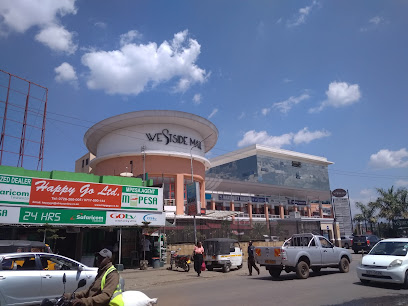
Lake Nakuru National Park
Explore the captivating beauty and rich wildlife of Lake Nakuru National Park, a premier destination for nature lovers and adventure seekers in Kenya.
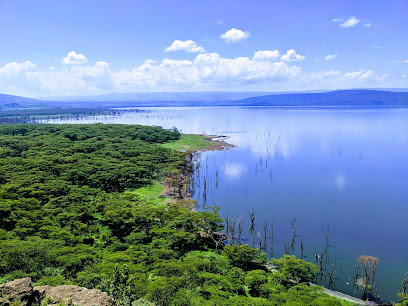
Sarova Woodlands Hotel & Spa Nakuru
Discover luxury and natural beauty at Sarova Woodlands Hotel & Spa Nakuru, your perfect retreat in the heart of Kenya's breathtaking landscapes.
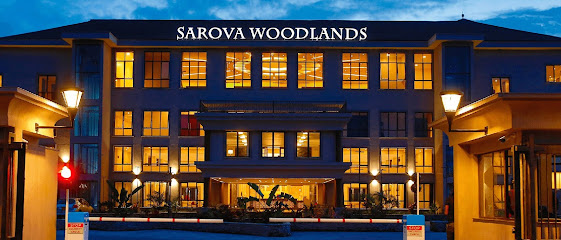
Merica Hotel Nakuru
Experience the charm of Nakuru with a luxurious stay at Merica Hotel, your gateway to local attractions and unforgettable adventures.
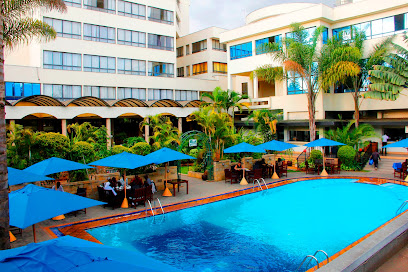
Hotel Waterbuck
Discover the charm of Nakuru at Hotel Waterbuck, where exceptional hospitality meets local flavors in a serene setting.

Sarova Lion Hill Game Lodge: Kenya Safari Lodge in Lake Nakuru National Park
Experience the magic of wildlife at Sarova Lion Hill Game Lodge, a luxurious retreat in Kenya's stunning Lake Nakuru National Park.

The Ole-Ken Hotel, Nakuru
Experience comfort and local hospitality at The Ole-Ken Hotel in Nakuru, your gateway to Kenya's natural wonders and vibrant culture.
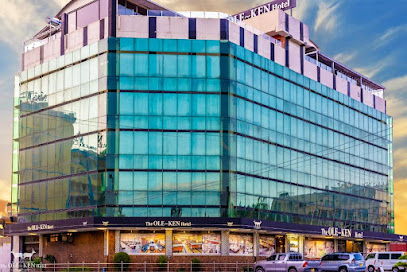
Eagle Palace Hotel
Discover luxury and comfort at Eagle Palace Hotel in Nakuru, the perfect base for your adventures in this vibrant city.
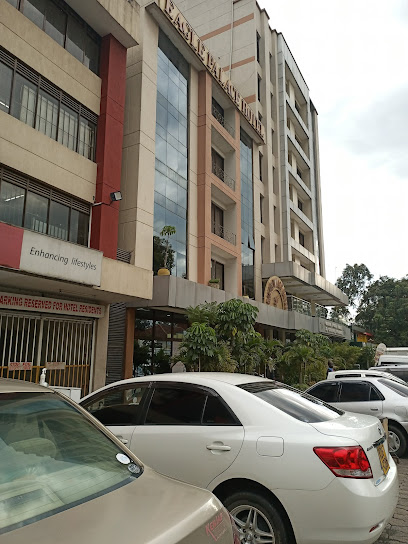
Highway Towers
Explore Highway Towers, Nakuru's vibrant business and shopping center, where local culture meets modern commerce in a lively atmosphere.
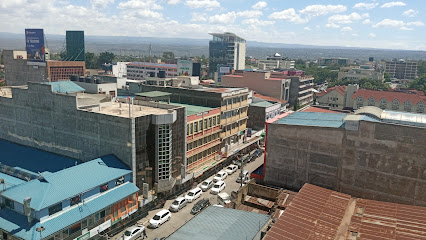
Central Park- Lions Garden
Discover the natural beauty and tranquility of Central Park - Lions Garden in Nakuru, a perfect urban oasis for relaxation and leisure.
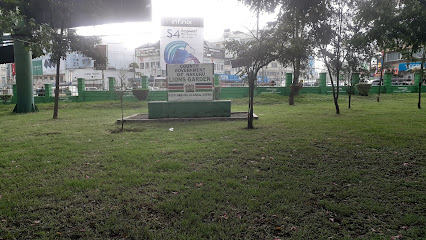
Culture Mambo Lounge
Experience vibrant Kenyan culture and cuisine at Culture Mambo Lounge in Nakuru, where every meal is a celebration of local flavors.
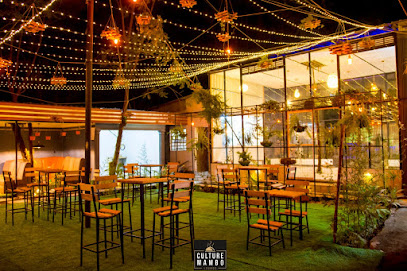
Milele Resort Nakuru
Experience the perfect blend of comfort and adventure at Milele Resort Nakuru, surrounded by breathtaking landscapes and vibrant wildlife.

Section 58 Center
Experience the lively ambiance of Section 58 Center, Nakuru's premier shopping destination with diverse shops and delightful dining options.
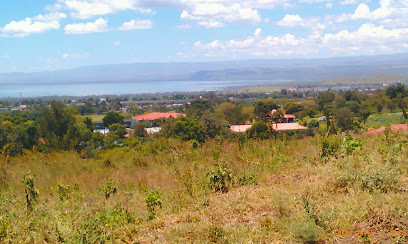
Lord Egerton Castle
Discover the enchanting Lord Egerton Castle in Nakuru, a historical site steeped in romance and architectural splendor, perfect for every traveler.
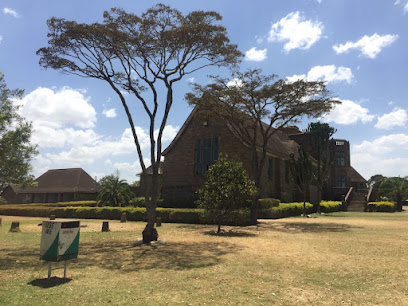
Nuru Palace Hotel
Discover the charm of Nakuru from Nuru Palace Hotel, your cozy retreat with essential amenities and easy access to local attractions.
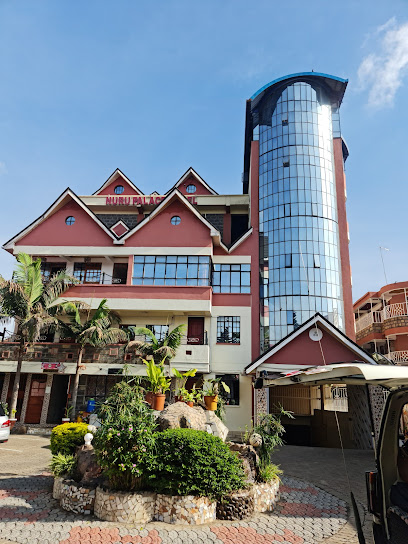
Unmissable attractions to see
Lake Nakuru National Park
Discover the breathtaking beauty and rich wildlife of Lake Nakuru National Park, a must-visit destination for nature lovers and adventure seekers in Kenya.
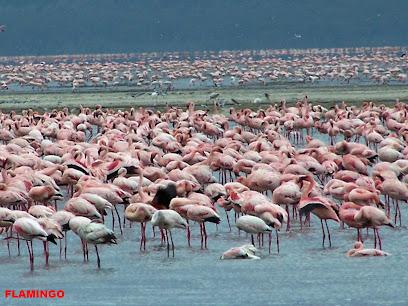
Sarova Lion Hill Game Lodge: Kenya Safari Lodge in Lake Nakuru National Park
Discover the magic of Kenya at Sarova Lion Hill Game Lodge, a luxurious retreat in Lake Nakuru National Park offering unparalleled safari experiences.

Central Park- Lions Garden
Experience the serene beauty of Central Park - Lions Garden in Nakuru, a perfect getaway for nature lovers and families seeking relaxation.
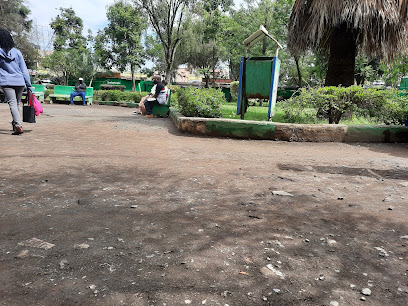
Lord Egerton Castle
Explore Lord Egerton Castle in Nakuru, a historic gem showcasing stunning architecture and the rich heritage of Kenya's colonial past.
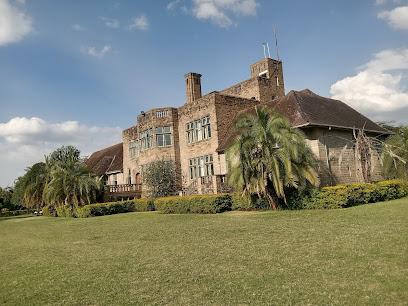
Nyayo Gardens Park
Discover the serene beauty of Nyayo Gardens Park in Nakuru, a tranquil escape perfect for relaxation, picnics, and cultural experiences amidst nature.
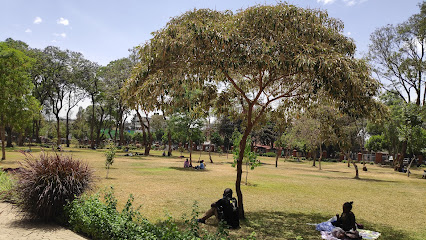
Hyrax Hill Museum
Explore Kenya's ancient past at Hyrax Hill Museum, a captivating destination showcasing rich archaeological treasures and stunning landscapes.
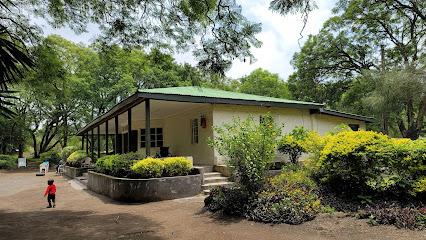
Lake Nakuru Lanet Gate
Explore the breathtaking landscapes and vibrant wildlife at Lake Nakuru Lanet Gate, a haven for nature lovers and birdwatching enthusiasts.
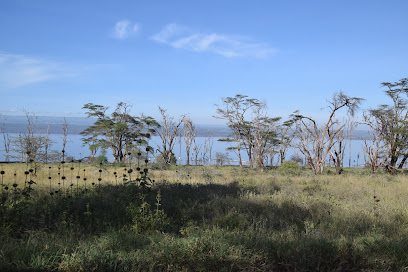
Lake Elementaita
Explore the stunning landscapes, vibrant wildlife, and rich cultural experiences at Lake Elementaita, a serene haven in Kenya's Great Rift Valley.
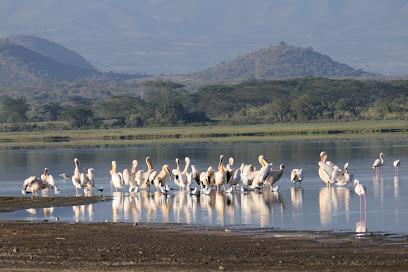
Menengai Crater
Explore Menengai Crater: A natural marvel in Kenya with stunning views, rich biodiversity, and thrilling hiking adventures.
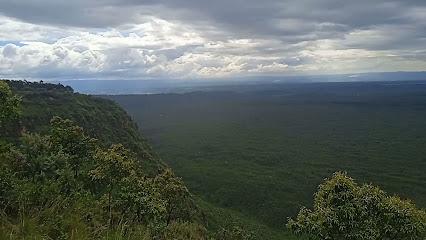
Soysambu Conservancy Main Gate
Discover the breathtaking landscapes and diverse wildlife at Soysambu Conservancy, a premier eco-tourism destination in Nakuru, Kenya.
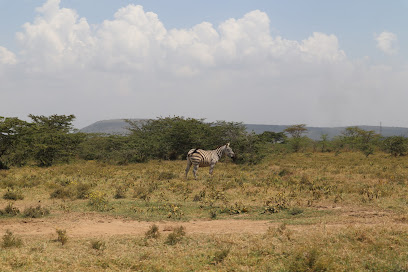
Kenya Forest Service Station
Discover the breathtaking beauty and tranquility of Kenya Forest Service Station, a national forest perfect for hiking, birdwatching, and connecting with nature.
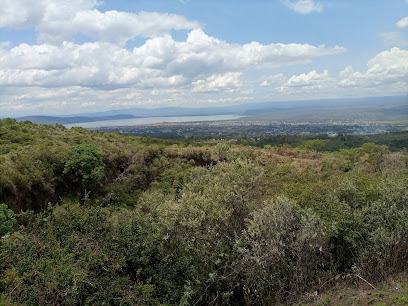
Mambo Game View, Nakuru
Discover the wonders of wildlife and breathtaking landscapes at Mambo Game View in Nakuru National Park, a premier destination for nature lovers.
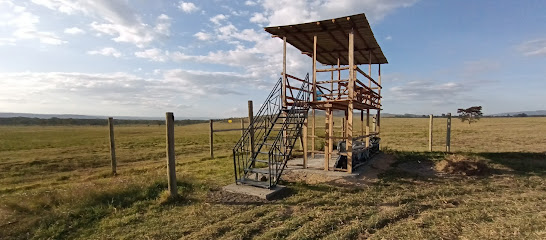
Menengai crater forest
Explore the breathtaking Menengai Crater Forest, a paradise for hikers and nature lovers showcasing stunning views and rich biodiversity near Nakuru.
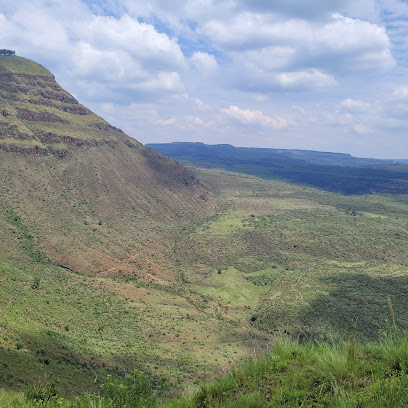
LAKE NAKURU NATIONAL PARK OFFICES
Experience the breathtaking beauty of Lake Nakuru National Park, a wildlife haven in Kenya with stunning views, diverse ecosystems, and vibrant birdlife.
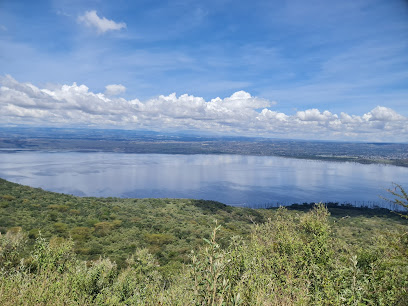
Rhino Point
Experience the awe-inspiring beauty of Rhino Point, a premier destination for wildlife lovers and nature enthusiasts in East Nakuru.
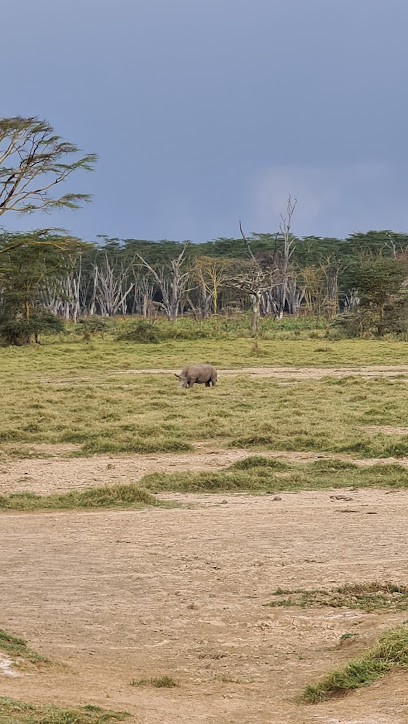
Essential places to dine
Java House
Experience the vibrant flavors of Kenya at Java House, Nakuru's top restaurant and café for locals and tourists alike.
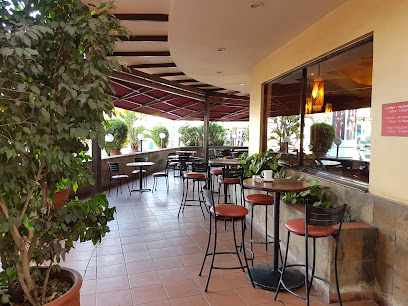
Rift Fries Restaurant
Experience culinary delight at Rift Fries Restaurant in Nakuru with delicious fries and diverse menu options catering to every taste.
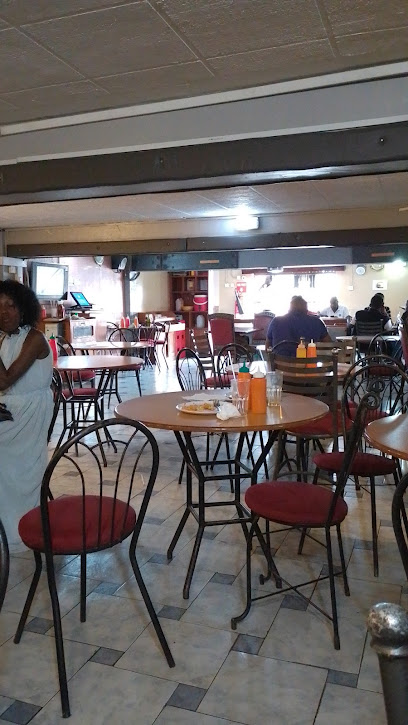
Culture Mambo Lounge
Discover authentic Kenyan flavors at Culture Mambo Lounge - where cuisine meets culture in Nakuru's vibrant dining scene.
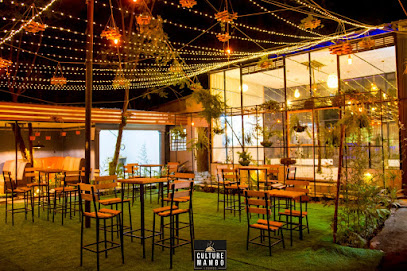
Majid Restaurant
Experience authentic Kenyan cuisine at Majid Restaurant in Nakuru – where tradition meets taste.
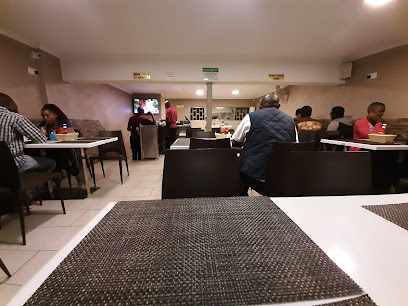
Gilani's Restaurant
Experience authentic Kenyan flavors at Gilani's Restaurant in Nakuru - where every dish tells a story.
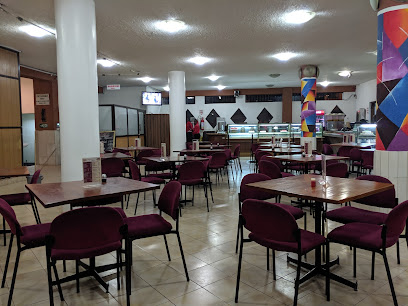
Fika and Feast
Experience the vibrant flavors of Kenya at Fika and Feast in Nakuru – where every meal is a celebration of local cuisine.
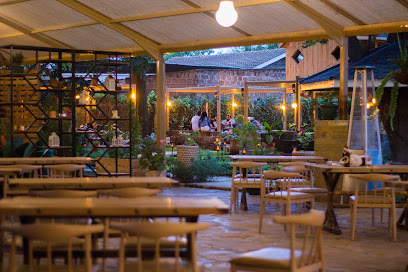
Chili's Tavern Nakuru
Experience culinary delights at Chili's Tavern Nakuru - where local flavors meet international cuisine in a vibrant setting.
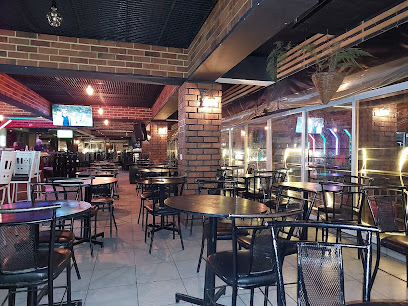
Lunar Park & Grill ,Nakuru city
Savor the flavors of Kenya at Lunar Park & Grill in Nakuru City—where culinary excellence meets vibrant atmosphere.
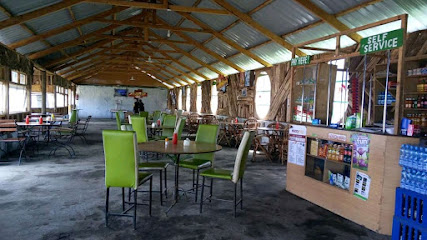
BLAZE GRILL Nakuru
Experience authentic Kenyan grilling at Blaze Grill Nakuru - where every bite tells a story.
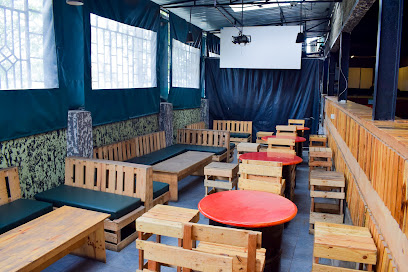
Tipsy Restaurant
Experience the best of local and international cuisine at Tipsy Restaurant in Nakuru - where every meal is a celebration of flavor.
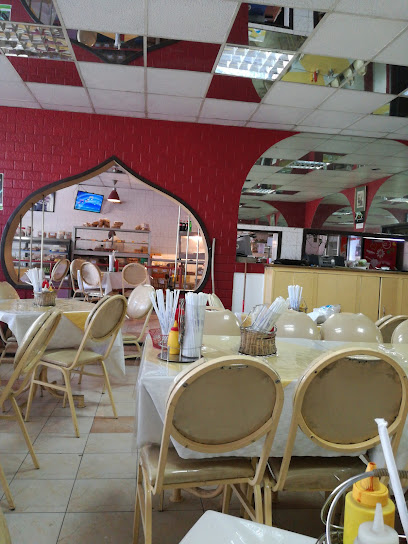
Bava Restaurant
Discover Bava Restaurant in Nakuru - where fast food meets local flavors in a welcoming atmosphere.
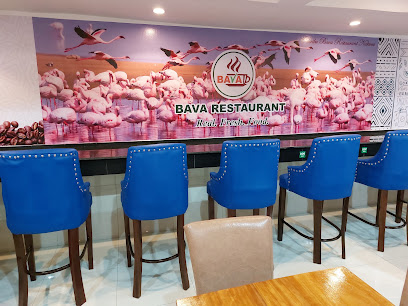
Kijani Kafe - Bar and Restaurant
Discover the vibrant flavors of Kenya at Kijani Kafe - where every meal is an experience in nature's embrace.
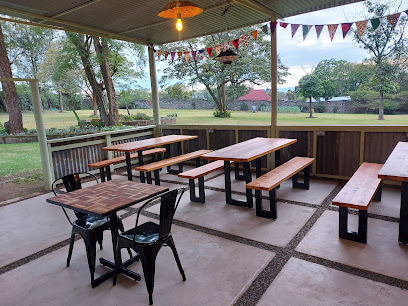
Rozina's
Experience authentic Chinese cuisine at Rozina's in Nakuru’s vibrant Westside Mall - A culinary delight for every traveler.
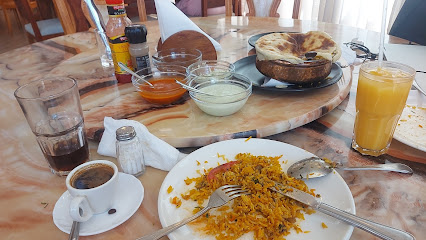
Bamboo Hut China Restaurant
Discover the rich flavors of authentic Chinese cuisine at Bamboo Hut China Restaurant in Nakuru's Gido Plaza.
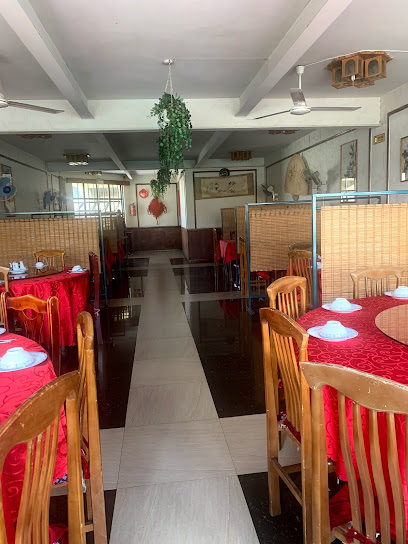
IPIZ RESTAURANT NAKURU. ( Govt.road BONTANA Junction , chege hse opposite Jimmy's chomabite)
Experience authentic Kenyan cuisine at IPIZ Restaurant in Nakuru – a vibrant dining destination for food lovers.
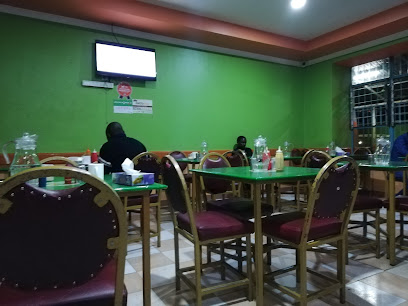
Markets, malls and hidden boutiques
Westside Mall
Explore Westside Mall in Nakuru, where shopping meets entertainment in a vibrant and modern setting, perfect for tourists and locals alike.
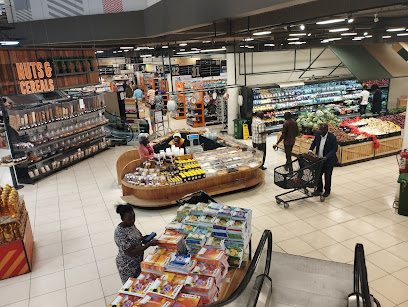
Think Twice Second Hand Clothes - Nakuru Kenyatta
Uncover unique and stylish second-hand clothing at Think Twice in Nakuru, where affordability meets sustainability.
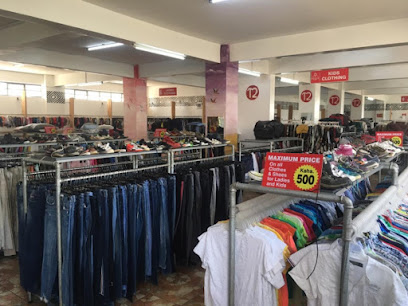
Think Twice Second Hand Clothes - Nakuru Biashara
Discover sustainable fashion at Think Twice Second Hand Clothes in Nakuru Biashara, your go-to destination for unique and affordable clothing options.
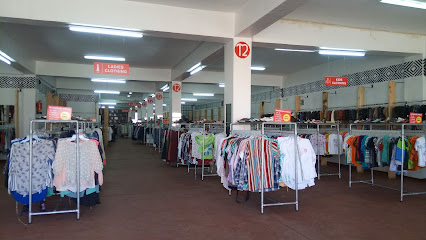
LC Waikiki
Explore the latest trends and affordable fashion at LC Waikiki, Nakuru's premier clothing store for all ages.
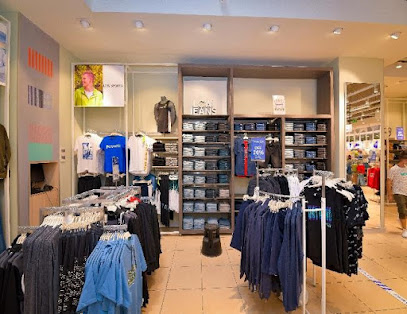
Bows & Ribbons (Gifts Nakuru)
Discover the charm of Bows & Ribbons, Nakuru's premier gift shop offering unique souvenirs and stunning floral arrangements to make your visit unforgettable.
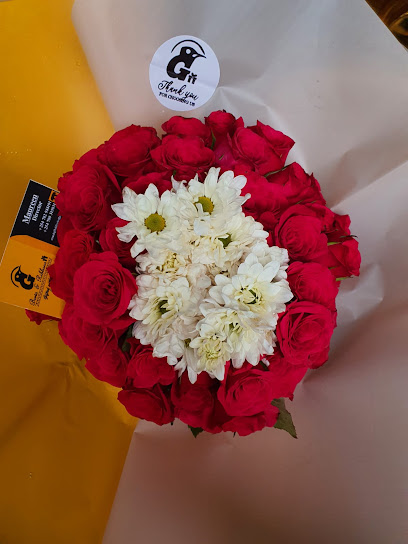
Malaika Gifts & Interiors
Explore unique handcrafted gifts and souvenirs at Malaika Gifts & Interiors, a charming shop celebrating Kenyan artistry in Nakuru.
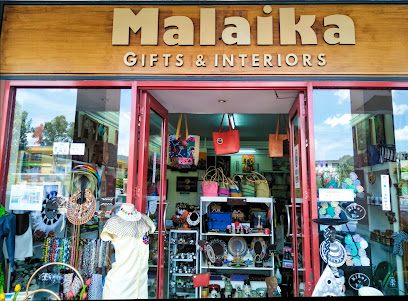
Unique Stagematt Highway
Discover the charm of Nakuru at Unique Stagematt Highway, where local culture meets convenience for every traveler.
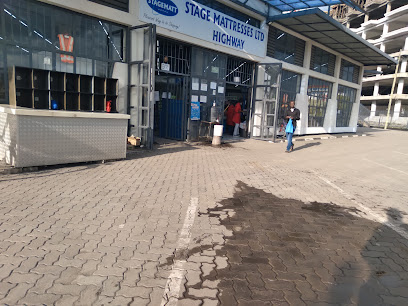
Bizwane Beauty & Gift Shop, Nakuru
Explore Nakuru's finest gift and beauty shop, offering unique treasures and quality products for every occasion.
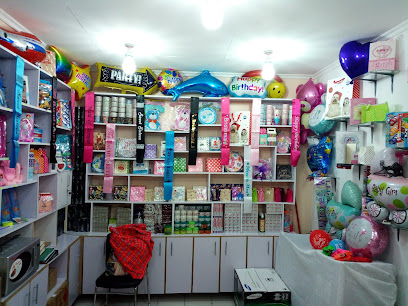
Nakuru Woolshop Ltd
Explore the best of Nakuru's fashion scene at Nakuru Woolshop Ltd - vibrant textiles and unique clothing await you.
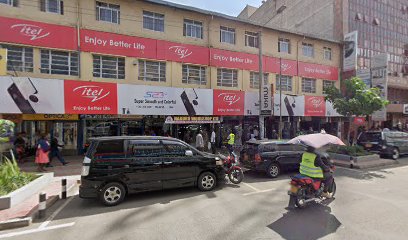
City Walk Kenya LTD - Nakuru
Discover stylish shoes, bags, and clothing at City Walk Kenya LTD in Nakuru, your go-to shopping destination for fashion and accessories.
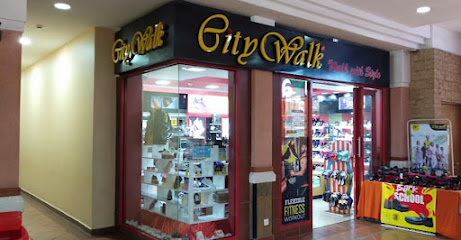
Wakaguku Stores
Discover unique home goods and local artistry at Wakaguku Stores in Nakuru, your go-to shop for authentic Kenyan souvenirs.
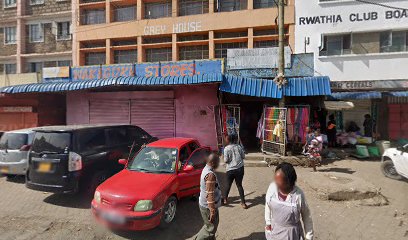
Nakuru Gift shop & Flowers
Discover unique gifts and stunning floral arrangements at Nakuru Gift Shop & Flowers, a local treasure in the heart of Nakuru.
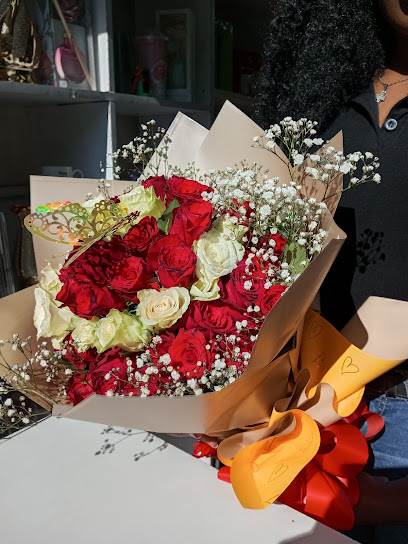
Maya Emporium
Discover unique styles and local fashion treasures at Maya Emporium, a premier clothing store in the heart of Nakuru.
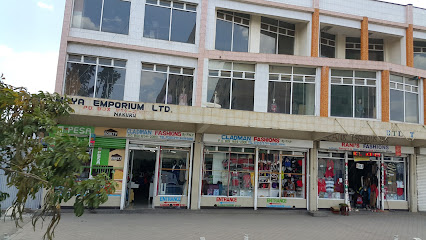
Neema Shop
Explore Neema Shop in Nakuru for authentic Kenyan crafts, local delicacies, and a charming shopping experience that supports the community.
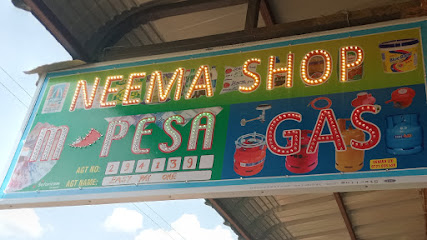
Curios Shop
Uncover the charm of Nakuru at the Curios Shop, where unique gifts and local artistry await every traveler.
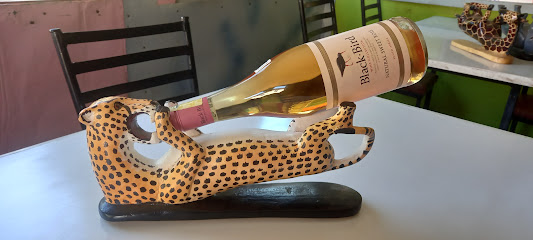
Essential bars & hidden hideouts
Sans Chic
Discover the vibrant atmosphere of Sans Chic, Nakuru's premier lounge offering delicious cocktails and a lively social scene.
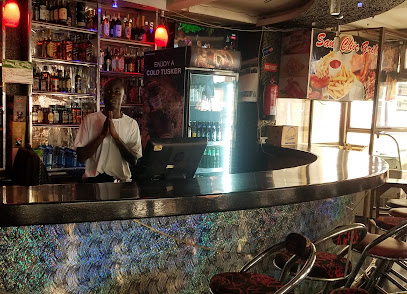
Platinum 7D Lounge
Discover the electrifying nightlife at Platinum 7D Lounge, Nakuru's premier destination for music, drinks, and unforgettable experiences.
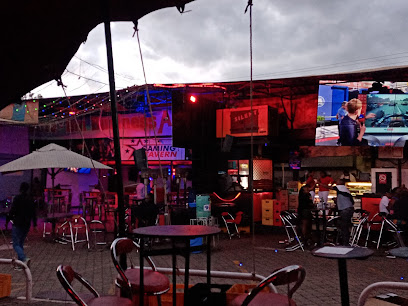
LASIDA GRILL
Experience the vibrant nightlife of Nakuru at Lasida Grill, where refreshing drinks and a lively atmosphere await.
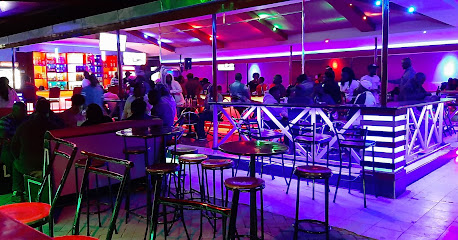
Gigi rooftop Lounge & Grill
Experience Nakuru's vibrant nightlife at Gigi Rooftop Lounge & Grill, where stunning views and delicious cuisine create unforgettable moments.
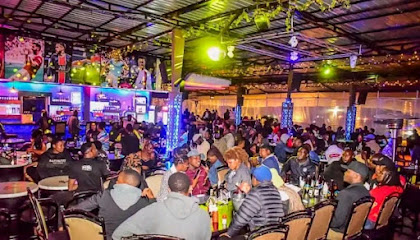
Ndosh Pub
Discover Nakuru's nightlife at Ndosh Pub, a vibrant bar offering a welcoming atmosphere and a diverse drink menu for an unforgettable experience.
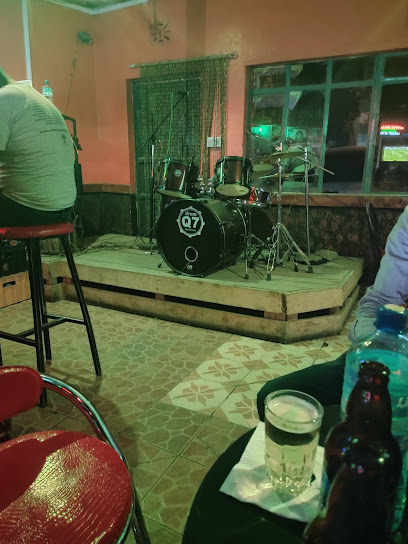
Three Ways Pub
Experience the vibrant nightlife of Nakuru at Three Ways Pub, where local culture and friendly vibes come together.
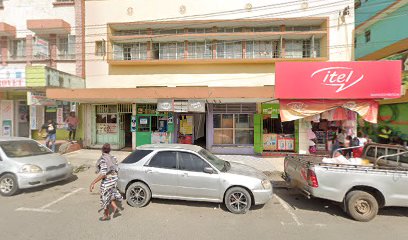
Spacepark Bar
Discover the vibrant flavors and welcoming atmosphere at Spacepark Bar, Nakuru's premier grill destination for tourists and locals alike.
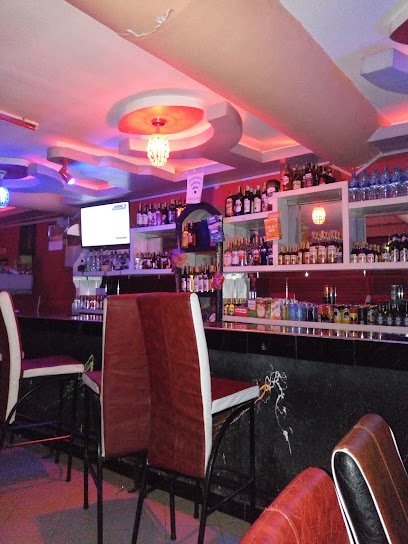
Beyond Fridays Lounge and Coffee Bar
Experience the vibrant nightlife of Nakuru at Beyond Fridays Lounge and Coffee Bar, where great drinks and a lively atmosphere await.
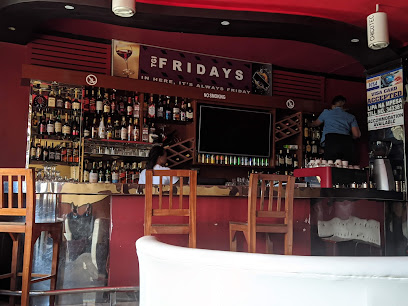
Joyous Pub
Experience the lively ambiance and affordable drinks at Joyous Pub, Nakuru's go-to spot for a memorable night out with friends.
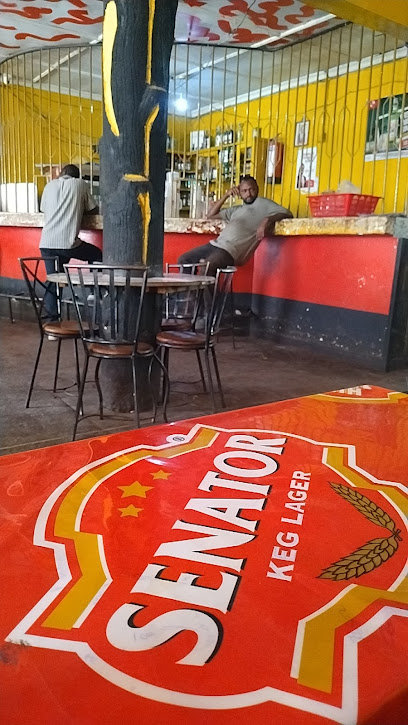
Patrons Bar and Lounge
Experience the vibrant atmosphere of Patrons Bar and Lounge in Nakuru, where relaxation meets lively entertainment in a welcoming environment.

Utugi Bar
Discover the lively spirit of Nakuru at Utugi Bar, where great drinks, local food, and vibrant atmosphere come together for an unforgettable experience.
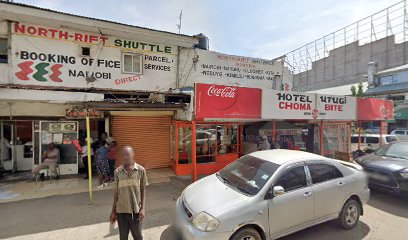
Club fine Thank You
Discover the lively nightlife of Nakuru at Club Fine Thank You, where great drinks and a vibrant atmosphere await.
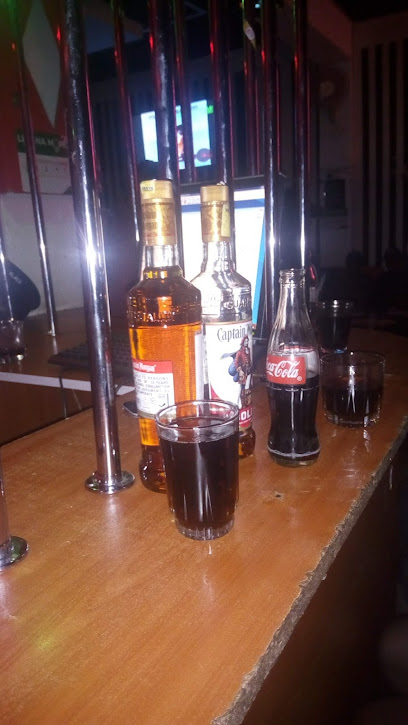
Unique Tavern
Explore the lively Unique Tavern in Nakuru, where vibrant drinks and local culture come together for an unforgettable night out.
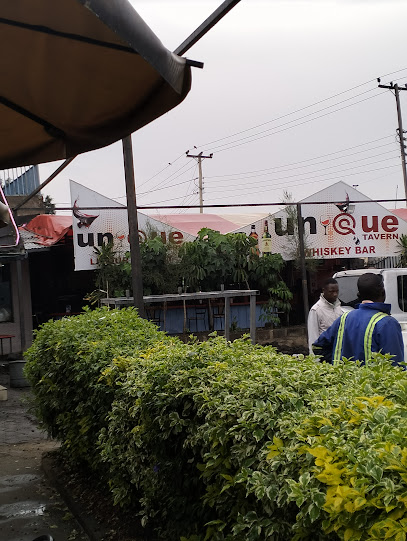
TAVERN GRILL AND LOUNGE
Explore delightful grilled dishes at Tavern Grill and Lounge in Nakuru's Biashara borough, where flavor and ambiance meet.
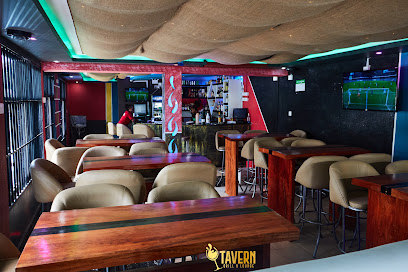
Travel experiences inspired by this city
Explore more travel diariesLocal Phrases
-
- HelloSalamu
[sa-la-mu] - GoodbyeKwaheri
[kwa-he-ri] - YesNdio
[n-dee-o] - NoHapana
[ha-pa-na] - Please/You're welcomeTafadhali
[ta-fa-dha-li] - Thank youAsante
[a-san-te] - Excuse me/SorrySamahani
[sa-ma-ha-ni] - How are you?Uko aje?
[u-ko a-je] - Fine. And you?Safi. Na wewe?
[sa-fi. na we-we] - Do you speak English?Unasema Kiingereza?
[u-na-se-ma kin-ge-re-za] - I don't understandSieelewi
[si-e-le-wi]
- HelloSalamu
-
- I'd like to see the menu, pleaseNingependa kuona menyu, tafadhali
[nin-ge-pen-da ku-o-na men-yu, ta-fa-dha-li] - I don't eat meatSiwi nyama
[si-wi nya-ma] - Cheers!Saluti!
[sa-lu-ti] - I would like to pay, pleaseNingependa kulipa, tafadhali
[nin-ge-pen-da ku-li-pa, ta-fa-dha-li]
- I'd like to see the menu, pleaseNingependa kuona menyu, tafadhali
-
- Help!Msaada!
[m-saa-da] - Go away!Ondoka!
[on-do-ka] - Call the Police!Piga polisi!
[pi-ga po-li-si] - Call a doctor!Piga daktari!
[pi-ga dak-ta-ri] - I'm lostNimepotea
[ni-me-po-te-a] - I'm illNinaumwa
[ni-na-um-wa]
- Help!Msaada!
-
- I'd like to buy...Ningependa kununua...
[nin-ge-pen-da ku-nu-nua] - I'm just lookingNatazama tu
[na-ta-za-ma tu] - How much is it?Bei ni ngapi?
[bei ni nga-pi] - That's too expensiveHilo ni ghali sana
[hi-lo ni gha-li sa-na] - Can you lower the price?Unaweza kupunguza bei?
[u-na-we-za ku-pun-gu-za bei]
- I'd like to buy...Ningependa kununua...
-
- What time is it?Saa ngapi?
[sa-a nga-pi] - It's one o'clockNi saa moja
[ni sa-a mo-ja] - Half past (10)Nusu kumi
[nu-su ku-mi] - MorningAsubuhi
[a-su-bu-hi] - AfternoonMchana
[m-cha-na] - EveningJioni
[jo-ni] - YesterdayJana
[ja-na] - TodayLeo
[le-o] - TomorrowKesho
[ke-sho] - 1Moja
[mo-ja] - 2Mbili
[m-bi-li] - 3Tatu
[ta-tu] - 4Nne
[n-ne] - 5Tano
[ta-no] - 6Sita
[si-ta] - 7Saba
[sa-ba] - 8Nane
[na-ne] - 9Tisa
[ti-sa] - 10Kumi
[ku-mi]
- What time is it?Saa ngapi?
-
- Where's a/the...?Iko wapi...?
[i-ko wa-pi] - What's the address?Anwani ni gani?
[an-wa-ni ni ga-ni] - Can you show me (on the map)?Unaweza kunionyesha (kwenye ramani)?
[u-na-we-za ku-ni-o-nye-sha (kwe-ne ra-ma-ni)] - When's the next (bus)?Basi la pili ni saa ngapi?
[ba-si la pi-li ni sa-a nga-pi] - A ticket (to ....)Tiketi (kwenda ...)
[ti-ke-ti (kwen-da)]
- Where's a/the...?Iko wapi...?
History of Nakuru
-
Before the arrival of European settlers, Nakuru was inhabited by the Maasai people, a semi-nomadic ethnic group known for their rich cultural heritage. The Maasai relied on livestock farming and lived in harmony with the environment, utilizing the vast plains for grazing cattle. Their traditional lifestyle and customs still influence the cultural tapestry of Nakuru today.
-
Nakuru's modern history began with the arrival of the Uganda Railway in the early 20th century. The town became a significant stop along the railway line, which connected Mombasa to Kampala. The railway fostered economic growth, attracting European settlers and boosting trade. Nakuru quickly transformed into a bustling commercial hub, with infrastructure developments and new settlements cropping up around the railway station.
-
During the colonial period, the fertile lands around Nakuru were designated as part of the 'White Highlands,' reserved for European settlers. This led to the establishment of large farms and ranches, primarily for tea, coffee, and dairy farming. The influx of European settlers significantly altered the social and economic landscape, leading to the displacement of local communities and the introduction of new agricultural practices.
-
The struggle for independence in Kenya saw Nakuru play a pivotal role during the Mau Mau Uprising in the 1950s. The movement, led by Kenyan nationalists, sought to end British colonial rule. Nakuru and its surrounding areas were hotbeds of resistance, witnessing numerous skirmishes and acts of defiance against colonial authorities. The uprising laid the groundwork for Kenya's eventual independence in 1963.
-
Following Kenya's independence, Nakuru continued to grow and develop. The town became a key administrative and commercial center in the Rift Valley Province. Efforts to diversify the economy saw investments in manufacturing, tourism, and agriculture. Educational institutions, healthcare facilities, and modern infrastructure projects were established, further enhancing Nakuru's status as a regional hub.
-
Established in 1961, Lake Nakuru National Park is one of Kenya's premier wildlife sanctuaries. The park is renowned for its stunning landscapes, diverse wildlife, and, most notably, its large flocks of flamingos that transform the lake's shores into a sea of pink. The park's conservation efforts have also helped protect endangered species such as the Rothschild giraffe and the black rhino. It remains a major tourist attraction, drawing visitors from around the world.
-
Nakuru is a melting pot of cultures, with a rich tapestry of ethnic groups including the Kikuyu, Kalenjin, Luo, and Indian communities. This cultural diversity is reflected in the town's festivals, cuisine, and daily life. The annual Nakuru Agricultural Show and the vibrant local markets are just a few examples of the community's dynamic spirit. The town's cultural heritage is also preserved in its museums and cultural centers.
-
In recent years, Nakuru has experienced rapid urbanization and modernization. The town has expanded into a city, with new residential areas, shopping centers, and business districts emerging. Infrastructure projects, such as road upgrades and the establishment of technology hubs, have further spurred growth. Despite these changes, Nakuru continues to balance its rich history with the demands of modern life, maintaining its unique blend of tradition and progress.
Nakuru Essentials
-
Nakuru is located in the Rift Valley region of Kenya. The nearest international airport is Jomo Kenyatta International Airport (NBO) in Nairobi, approximately 160 kilometers away. From Nairobi, you can take a bus, a private car, or a taxi to Nakuru. The journey by road typically takes around 2.5 to 3 hours via the A104 highway. Alternatively, you can take a domestic flight from Wilson Airport in Nairobi to Nakuru's Lanet Airstrip, which is a shorter, though less common, option.
-
Within Nakuru, you can use various forms of transportation. Matatus (public minibuses) are the most common and affordable means of getting around the city. Taxis and ride-hailing services like Uber and Bolt are also available and convenient for door-to-door transportation. For a more personalized experience, you can rent a car; many rental agencies operate in the city. For short distances, boda-bodas (motorcycle taxis) offer a quick and inexpensive option, though they are less safe than other forms of transport.
-
The official currency in Kenya is the Kenyan Shilling (KES). Credit and debit cards are widely accepted in hotels, restaurants, and large stores. However, it is advisable to carry some cash, especially when visiting smaller establishments, markets, or rural areas. ATMs are plentiful in Nakuru, but it's wise to inform your bank of your travel plans to avoid any issues with card usage.
-
Nakuru is generally safe for tourists, but like any city, it has areas with higher crime rates. Avoid walking alone at night, especially in isolated areas or neighborhoods like Kivumbini and Bondeni. Always keep an eye on your belongings, particularly in crowded places like markets and bus stations. Use registered taxis or ride-hailing services for safer transportation. It's also advisable to avoid displaying expensive jewelry or large amounts of cash in public.
-
In case of an emergency, dial 999 for police, fire, or medical assistance. Nakuru has several hospitals and clinics, including Nakuru Level 5 Hospital, which provides comprehensive medical services. It's essential to have travel insurance that covers medical emergencies. For minor health issues, numerous pharmacies in the city offer over-the-counter medications. Keep the contact details of your country's embassy or consulate handy for any other emergency.
-
Fashion: Do dress modestly, especially when visiting religious or cultural sites. Avoid wearing overly revealing clothing. Religion: Do respect local customs and traditions. When visiting churches or mosques, dress conservatively and remove your shoes. Public Transport: Do be respectful to other passengers. Don't be loud or disruptive on public transport. Greetings: Do greet people with a handshake and a smile. It's polite to inquire about one's well-being. Eating & Drinking: Do try local dishes, such as Nyama Choma and Ugali. Don't refuse food if offered, as it is considered impolite.
-
To experience Nakuru like a local, visit the local markets such as the Nakuru Farmers' Market for fresh produce and traditional goods. Engage with locals, as they are often friendly and willing to share stories about the city's history and culture. Don't miss visiting Lake Nakuru National Park, home to flamingos and other wildlife. For a unique experience, take a walk along the Menengai Crater, one of the largest volcanic craters in the world, which offers breathtaking views and hiking opportunities.
Trending Landmark in Nakuru
-
Westside Mall
-
Lake Nakuru National Park
-
Sarova Woodlands Hotel & Spa Nakuru
-
Merica Hotel Nakuru
-
Hotel Waterbuck
-
Sarova Lion Hill Game Lodge: Kenya Safari Lodge in Lake Nakuru National Park
-
The Ole-Ken Hotel, Nakuru
-
Eagle Palace Hotel
-
Highway Towers
-
Central Park- Lions Garden
-
Culture Mambo Lounge
-
Milele Resort Nakuru
-
Section 58 Center
-
Lord Egerton Castle
-
Nuru Palace Hotel
Nearby Cities to Nakuru
-
Things To Do in Naivasha
-
Things To Do in Eldoret
-
Things To Do in Nairobi
-
Things To Do in Kisumu
-
Things To Do in Kitale
-
Things To Do in Mbale
-
Things To Do in Jinja
-
Things To Do in Arusha
-
Things To Do in Moshi
-
Things To Do in Kampala
-
Things To Do in Entebbe
-
Things To Do in Mwanza
-
Things To Do in Lira
-
Things To Do in Masaka
-
Things To Do in Bukoba












